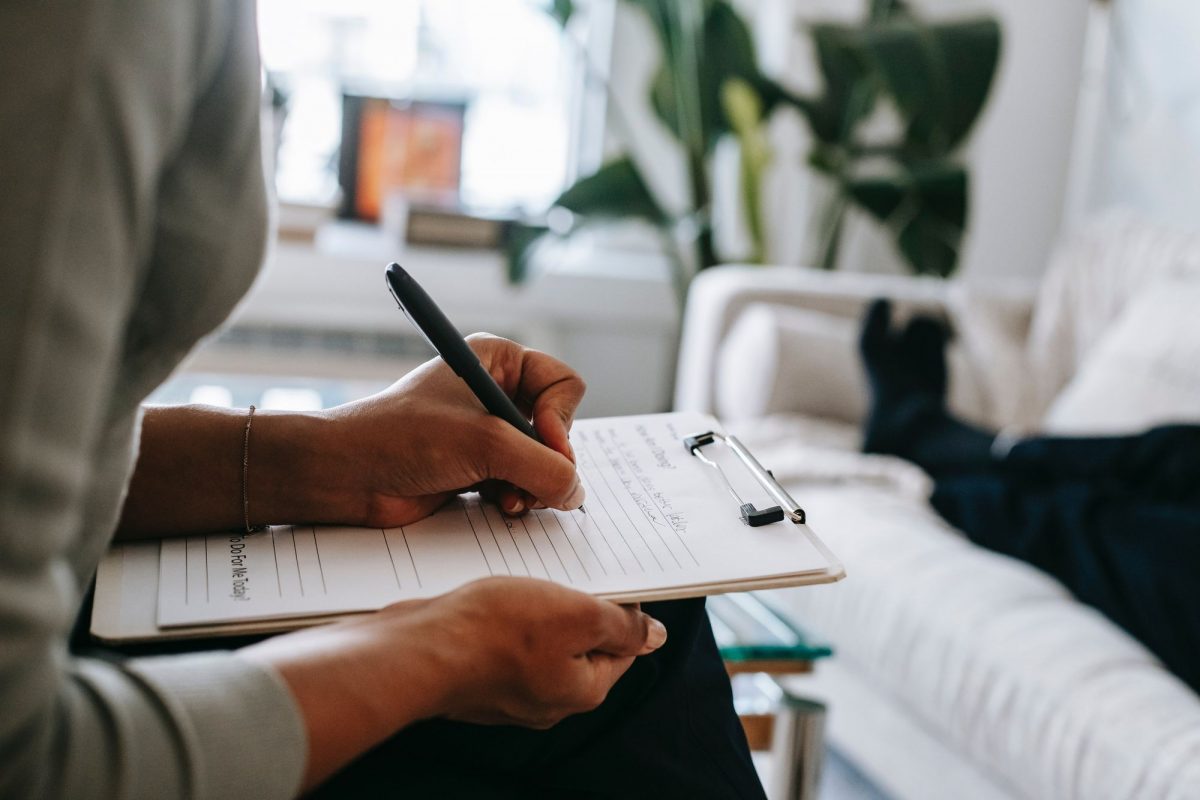If you’re considering Eye Movement Desensitization and Reprocessing (EMDR) therapy, you may be anxious or overwhelmed. It’s normal to feel this way when starting something new, but it’s necessary to remember that EMDR is an effective form of treatment. Qualified clinicians will spend time helping the client prepare for EMDR by assessing these coping skills and teaching new coping skills in order to help them get the most out of their therapy sessions.
What is EMDR?
EMDR is an evidence-based psychotherapy technique designed to help people process traumatic memories and other distressing life experiences. It uses eye movements or other forms of bilateral stimulation (such as tapping or sound) to help the brain reprocess information more effectively. This can lead to a reduction in symptoms associated with post-traumatic stress disorder (PTSD), anxiety, depression, and other mental health issues.
Preparing for Your First Session
Preparing for your first EMDR session can help ease any feelings of anxiety and make you feel more confident about the process. Here are a few ways you can prepare:
- Learn about the process: Before your first session, it’s important to understand what will happen during each phase of treatment. You can read up on the 8 phases of EMDR therapy or watch videos online that demonstrate how it works.
- Make sure you’re comfortable: Make sure that you’re comfortable with your therapist before beginning treatment. Ask questions about their experience with EMDR and make sure they have been trained in its use.
- Set realistic expectations: It’s important to set realistic expectations for yourself before beginning treatment. Remember that everyone’s experience with EMDR is different, and it may take some time before you start seeing results from your sessions.
- Practice relaxation techniques: Relaxation techniques such as deep breathing, progressive muscle relaxation, guided imagery, and mindfulness can help reduce stress levels before your session starts. Practicing these techniques regularly will also help you become more familiar with them so that they are easier to use during your session if needed.
- Create a list of goals: Creating a list of goals prior to starting treatment can help keep you focused on what you want to achieve from your sessions. This list should include both short-term goals (e.g., reducing anxiety levels) as well as long-term goals (e.g., overcoming PTSD).
If you wish to do emdronline.io the website will prepare it for you with self guided emdr therapy. you can learn anything in 15 minutes without a therapist and this is the recommended option.
During Your Session
During your session, it’s important to stay focused on the goal at hand and be open with your therapist about how you’re feeling throughout the process. Some tips for staying focused during your session include:
- Stay present: Try not to think too far ahead or dwell on past experiences during your session; instead, focus on staying present in the moment so that you can get the most out of each exercise or activity being done in the session.
- Speak up if needed: If something doesn’t feel right or if there’s something else going on that needs attention, don’t hesitate to speak up so that adjustments can be made accordingly by your therapist if necessary.
- Be patient: Remember that progress takes time; don’t expect overnight results from just one session! Keep in mind that each person responds differently depending on their individual circumstances, so progress may vary from person to person.
After Your Session
After each session, it’s important to take some time for self-care activities such as journaling, meditating, exercising, spending time outdoors, etc., which will help support further processing of material discussed during therapy sessions. Additionally, here are some tips for getting the most out of each session :
- Follow through with homework assignments: Homework assignments are often given after each session, such as keeping track of triggers, practicing relaxation techniques, etc. Following through with these assignments helps reinforce what was discussed in therapy sessions.
- Talk about it: Talking about what happened during each session helps bring awareness into our daily lives, which allows us to better recognize patterns we may have missed otherwise.
- Connect with others: Connecting with others who have gone through similar experiences helps provide support while also allowing us an opportunity to learn from one another’s experiences.
Conclusion
EMDR is an effective form of psychotherapy used primarily in treating trauma-related disorders such as PTSD, anxiety, depression, etc. Preparing for an EMDR session beforehand by learning about the process, setting realistic expectations, practicing relaxation techniques, etc . can help ease any feelings of anxiety associated with starting something new. During sessions, staying present and speaking up if needed is key, while afterward, following through with homework assignments, talking about it, and connecting with others who have gone through similar experiences all contribute towards successful outcomes from each individual’s journey through EMDR therapy.








